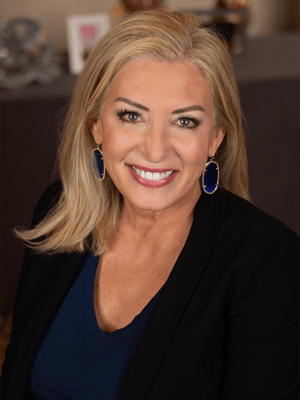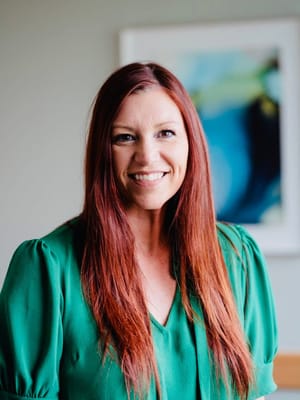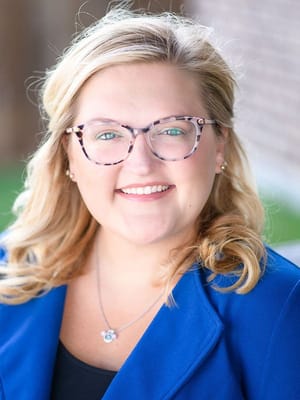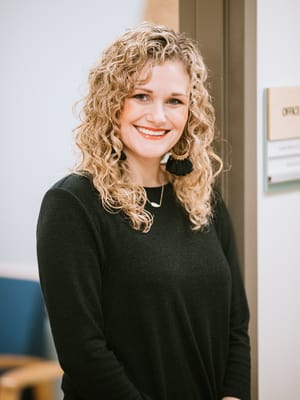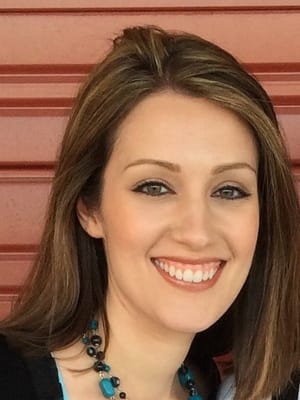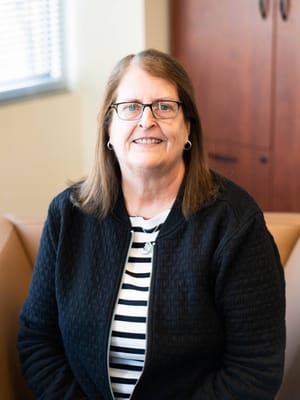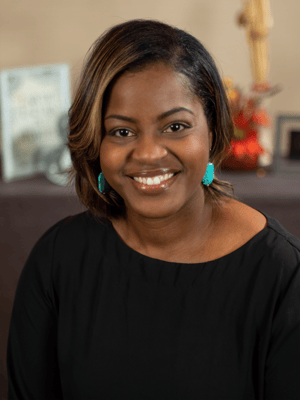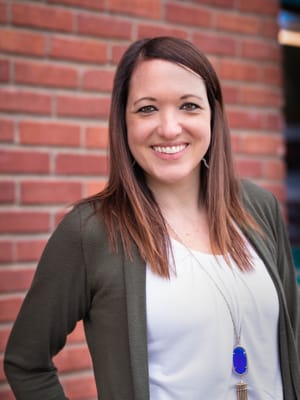Eating Recovery Center Dallas/Plano

Location Details
Find effective eating disorder treatment in Dallas, TX
Founded in 2020 as an expansion of our ERC Baylor center and located near the vibrant center of Dallas, Texas, ERC Dallas has become one of the most comprehensive, medically supervised eating disorder treatment programs in the entire country.
Located in Plano, one of Dallas’s largest suburbs, the entire building is dedicated to our full continuum of care: meeting every single patient – including children, adolescents and adults – exactly where they are.
- 87% of former patients agreed that their experience at ERC was helpful
- 91% of parents of former patients would recommend ERC to others in need of services
- Trusted by over 20,000 patients and their families
- Specialized treatment designed by a team of experienced clinicians
Find Recovery with Evidence-Based Therapies

Lighting your way to recover from eating disorders
Develop a toolbox of new coping skills
Learn how to interrupt eating disorder thoughts, behaviors and coping mechanisms to create a life based on your values.
Explore various approaches to healing
Experience self-growth with individual and group therapy, nutritional education, art, music, yoga and pet therapy.
Be your authentic self — without judgement
Find acceptance in supportive, welcoming and affirming spaces that respect diversity, cultural differences and all belief systems.
State-of-the-art medical care for eating disorders
At over 100,000 square feet, with 72 beds in our inpatient and residential treatment units, we offer:
- Medical and psychiatric stabilization
- 24/7 nursing support
- Evidence-based treatment for eating disorders and co-occurring illnesses
The entire standalone facility is dedicated to ERC, giving our patients and families a fully committed wraparound team that includes:
- Psychiatrists
- Internal medicine physicians
- EMDR-certified therapists
- Registered dietitians
- Family clinicians
- Nursing support
- Alumni support and other support staff
- Teachers and educational specialists
Accredited by the Joint Commission, our leadership team includes many experts in the field who have led and continue to lead research supporting effective, evidence-based eating disorders treatment.

“Our leadership team has been together for many, many years…and we’re very invested in the culture that we have with our employees in our centers. That shines through in the care that we give to our patients. We’re also very passionate about working with families, incorporating the entire support system and seeing them through this really difficult time.”
Take a look inside ERC Dallas.
Meet our expert care team and find out what your child’s day-to-day will look like at ERC Dallas. Learn more about our education support, see art therapy in action and meet Scout the therapy dog.

Who We Treat
-

Children & Adolescents
We can help guide you and your child on a path to long-lasting change and healing.
-

Adults
We provide eating disorder treatment and mood and anxiety disorder treatment for all genders ages 18 and older.
Struggling with an eating disorder?
One conversation can make all the difference. Connect with us today.
Conditions We Treat
-

Eating Disorders
An eating disorder is a treatable mental illness that includes a number of different symptoms, including extreme emotions, attitudes, and behaviors surrounding weight and food issues.
-

Anorexia
Anorexia nervosa is characterized by an obsessive fear of weight gain and a refusal to maintain a healthy body weight.
-

Atypical Anorexia
You can’t tell if someone has an eating disorder just by looking at them. See how atypical anorexia affects people in a variety of body shapes and sizes.
-

ARFID
ARFID is a lesser known eating disorder that frequently begins as early as infancy or childhood, but adults can also suffer.
-

Binge Eating Disorder
Binge eating disorder is characterized by frequent overeating – at least once a week for three months – combined with a lack of control, intense feelings of distress and several other characteristic behaviors.
-

Bulimia
Bulimia is characterized by patterns of bingeing and purging.
-

Compulsive Overeating
Compulsive overeating can involve binge eating and weight gain, but it can also involve other behaviors.
-

Diabulimia
The term diabulimia is used to describe the diagnosis of an eating disorder in an individual with type 1 diabetes. These patients intentionally misuse insulin for weight control.
-

OSFED
Some eating disorders do not meet all of the diagnostic criteria for specific diagnoses like anorexia nervosa and bulimia nervosa.
-

Orthorexia
Some people go to extremes to “eat clean” at all times. This may lead to a disordered eating pattern known as orthorexia.
Struggling with an eating disorder?
One conversation can make all the difference. Connect with us today.
Levels of Care Offered
-

Inpatient
Our Inpatient programming is designed to support adults, children and adolescents of all genders who are acutely ill and are experiencing medical and mood instability as a result of their eating disorder.
-

Residential
Within ERC Pathlight's step-down model of care, the Residential eating disorder treatment program as well as the Residential mood & anxiety treatment program offer medically stable patients a highly-structured and supportive 24-hour treatment environment.
-

Partial Hospitalization
Our Partial Hospitalization Program (PHP) offers some of the same intensity and structure of Residential mood, anxiety, and eating disorder treatment while providing additional opportunities to practice recovery outside of the controlled eating disorder treatment environment during evenings at home or in peer-supported apartment communities.
-

On-Site Intensive Outpatient Treatment
Our Intensive Outpatient program is a flexible mood, anxiety, and eating disorder treatment program that allows patients to work, go to school, or care for children during the day and sleep at home at night.
-

Virtual Intensive Outpatient - Eating Recovery At Home
ERC is removing the barriers that can keep patients with anorexia, bulimia, and other eating disorders from receiving treatment. Through telebehavioral health programming, Eating Recovery At Home (our virtual Intensive Outpatient Program) offers the same proven care as our in-person treatment centers.
Struggling with an eating disorder?
One conversation can make all the difference. Connect with us today.
Expert care and deep understanding of what patients need
Our approach to clinical care reduces confusion and stress for providers, patients and families. As patients move through treatment, we keep the same care model/approach, peer group and care team. This means that patients do not need to re-tell their story when they change the level of care. Consistency during step-downs provides an extra layer of support to reduce the risk of relapse.
Inpatient eating disorder treatment
The inpatient level of care is for patients who have the most severe and acute symptoms, complications and health risks – needing the highest level of support. Medical and nursing care is available around the clock, 24/7. Once these individuals are medically and psychiatrically stable, they have increased freedom to do the important work of recovery alongside registered dietitians, therapists and other team members.
Residential eating disorder treatment
Patients may enter our residential program directly, step down from inpatient or step up from PHP. This level of care also offers medical and nursing support around the clock, 24/7. In residential care, patients have more freedom than in inpatient, taking part in activities and outings outside the treatment center. Supplemental tube feeding is available in both residential and inpatient levels of care when needed.
PHP eating disorder treatment
Since eating disorders don’t take the weekend off, we don’t either. Our partial hospitalization program, backed by research on best outcomes, takes place 7 days a week, for 10 hours a day on weekdays and 8 hours a day on the weekends. Patients often stay in apartment housing near the treatment center to practice skills learned during the day. Our PHP provides the maximum clinical standard of care, offering the best chance at lasting recovery.
IOP eating disorder treatment
ERC's IOP is a flexible treatment program that enables patients to work, go to school or care for children during the day and sleep at home during evenings. Treatment is 3 hours per day, 3 days per week and includes nutritional counseling, individual and family therapy, supported meals and more.

Nutrition Counseling and Meal Support
At ERC Dallas, we help you find peace with food with supportive, structured meal planning that emphasizes balance, variety and flexibility. We strongly focus on exposures to familiarize our patients with food.
Examples of the work we do with patients includes:
- Body image and exposure work with mirror tracings
- Sand tray experientials and butter sculptures to feel more comfortable with food textures
- Nutrition and grocery store exposures
- Weekly variety snacks that enable patients to try different foods while in a supportive, structured environment
While we do “innings” where we bring food into the center in potluck or picnic-style, PHP patients can also go on “outings” to practice skills learned in treatment in daily life.
Questions about travel and housing?
Traveling from out of state? Many of our patients are faced with numerous travel and housing logistics, and we do our best to support you at each step of the way. ERC Dallas has nearby apartments that can be used for either adult or child/adolescent PHP patients. And, our team is happy to help you with any questions you have before and during treatment, Let us know how we can help.
Supporting Young Patients and Their Families
Family-based treatment that works
Our treatment approach heavily emphasizes the evidence-based Family-Based Treatment (FBT) model for treating eating disorders, considered the medical gold standard for working with children and adolescents.
By incorporating emotion-focused family therapy (EFFT) into our programming, caregivers move from feeling overwhelmed to feeling empowered. These two modalities are at the core of everything we do, with supplemental evidence-based psychotherapies integrated into the curriculum.
Rich & robust family programming
In addition to our national family education programming offered across the country, and virtual caregiver support groups, we do extensive supplementary programming at ERC Dallas to support caregivers.
- Dr. Tyler Wooten and a registered dietitian lead a weekly education series for caregivers each Monday.
- Dr. Wooten also offers “Talk Back Boot Camp” every other week.
- Dr. Stephanie Setliff and on-site leaders lecture each Wednesday on a range of educational topics.
Educational support for students
At ERC Dallas, we offer a certified, dedicated Education Specialist that works with Plano Independent School District to help support your loved one while in treatment.
We offer ‘school’ for our patients 2-3 hours each day: half is led by our Education Specialist; the other half is self-directed to support homework and any academic-related items.
Our goal is to ensure your loved one can keep up with school while maintaining the challenging work of recovery.
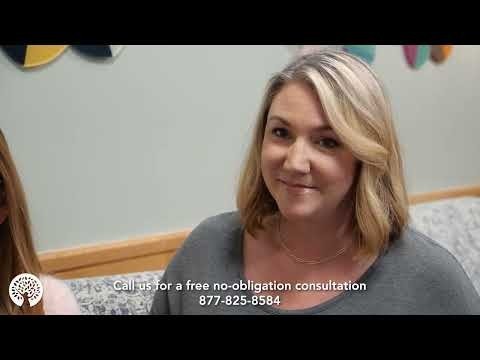
Testimonials
Just one phone call to get started
Reaching out for help is a critical, challenging and brave first step. Our admissions team, comprised of Clinical Response Specialists, Clinical Assessment Specialists and Admissions Coordinators, will walk you through the entire intake process and thorough assessment. Give us a call to get started on the road to recovery.
No referral is ever needed for you to access the treatment you need and deserve.
Let us help you with insurance
When facing a life-threatening eating disorder, you shouldn’t have to worry about how to pay for treatment. Our experienced team of insurance verification experts will diligently work with your insurance company to ensure all financial resources are being used to your benefit. We will communicate with you at each step of the way so you understand exactly what your coverage includes and how you can access are. A key benefit of ERC Dallas is that insurance providers are more likely to approve coverage within a full continuum of care as you or your loved one steps up or down.
Get matched with the exact support you need.
With one conversation, our mental health professionals will help you better understand what you’re going through and what you need.
We will meet you where you are, listen to your story in a therapeutic setting, and match you with the level of support that meets your struggle.
Covered by Most Commercial Insurance Plans
Our patient access team is here to advocate for you. We can help you address financial challenges and work with you to get you the maximum coverage offered by your plan.
Frequently Asked Questions
-
Do you work with any local groups or organizations?
We work closely with the Dallas chapter of the International Association Of Eating Disorders Professionals Foundation (IAEDP).
-
How do I know which eating disorder treatment level of care is right for me?
Our Clinical Response Specialists are here to guide you, beginning with your first call or web inquiry. They will discuss levels of care with you, and the following:
- Chat and explore eating disorder treatment options
- Answer any questions you might have about treatment
- Gather some basic information about your experience
If it seems that ERC might be a good fit, we will schedule a free 60–90-minute clinical assessment. During this assessment, we will determine treatment needs, explore your treatment options and recommend the optimal level of care for your goals.
-
What ages do you treat at ERC Dallas?
At this location, we treat children and adolescents ages 8 and up, in addition to adults.
-
How much time do parents and caregivers engage in treatment each week at ERC Dallas?
Caregivers take part in weekly nutrition education groups and join their loved one for virtual or in-person meals. As families approach PHP, they can expect to be engaged in six hours a week of Texas-based family programming. Our goal is to equip and empower all our caregivers to provide a bridge to recovery until the child is more comfortable on their own.
-
What type of eating disorder support do you offer once treatment ends?
You’ll receive follow-up emails and phone calls after your loved one is discharged from treatment, and we will walk you step by step through what to expect with the transition back home. Extensive aftercare planning with support from our Community Outreach team helps ensure you have a “plan of action” to maintain recovery. We can also help you pre-arrange outpatient appointments at discharge.
-
What type of eating disorder support is offered to caregivers and family members?
We strongly encourage caregivers, family members and friends to take part in our many educational and supportive offerings. You can register today and join us in all of these programs:

Find Virtual Eating Disorder Treatment in Texas
We also offer virtual eating disorder treatment for individuals in Texas through our Eating Recovery At Home program. Individuals in all cities and towns across Texas, including the cities listed below, are eligible to participate in Eating Recovery At Home. This program is the leading virtual IOP for eating disorders, and as effective as in-person treatment. If you are looking for an option to fit seamlessly into your everyday life, this online eating disorder therapy program is for you.
- Richardson
- Rowlett
- Dallas
- Allen
- Carrollton
- Lucas
- Sachse
- Frisco
- Highland Park
- Garland
- The Colony
- Rockwall
- Addison
- Farmers Branch
- Little Elm
- Wylie
- University Park
- Parker
Hide Last Child Layout Div
#who-we-treat, #conditions, #levels-of-care javascript
Show Who We Treat, Conditions, Levels of Care










